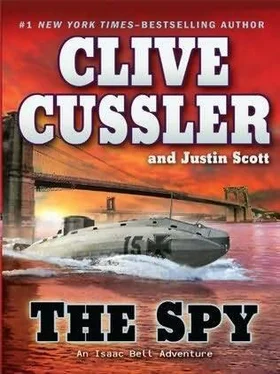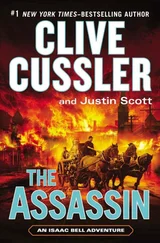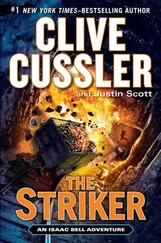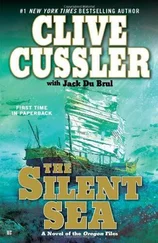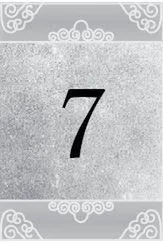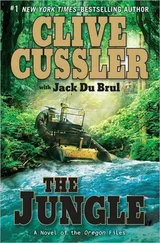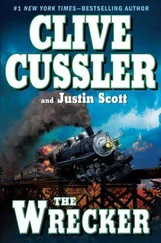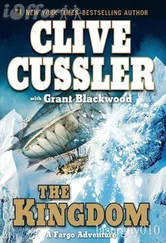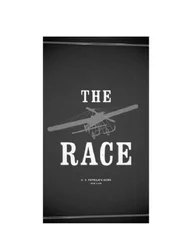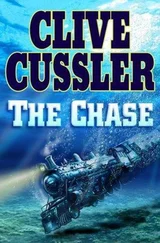“Did she say who did it?”
“A man named Weeks.”
“Thank you, Mrs. Pierce. Get her to a hospital-not in the district where she lives but the best in the city. I will pay all expenses. Stint on nothing. Here’s money for immediate needs.” Bell pressed it in the housekeeper’s hand and hurried to his room.
Swiftly, methodically, he cleaned his Browning and replaced the spent shell. Wondering again whether a heavier gun would have stopped Weeks before he could stab Alasdair MacDonald, he took a Colt.45 automatic from his safe. He checked the loads in his derringer and put on his hat. He stuffed the Colt and spare ammunition for both guns in his coat pockets and went down the stairs three at a time.
Matthew recoiled from the expression on his face. “Are you all right, Mr. Bell?”
“Not that you would frequent the joint, Matthew, but do you know the address of Commodore Tommy’s Saloon?”
“I believe it is way far across West 39th, almost to the river. But if I ever did ‘frequent the joint,’ ” he added bluntly, “I would not go alone.”
ISAAC BELL CHARGED OUT OF THE YALE CLUB. MEN WHO saw him coming moved aside. He crossed Sixth Avenue and Seventh, ignoring the blare of auto horns, and turned downtown on Eighth Avenue. On the nearly deserted sidewalk Bell increased his pace and yet he could not outpace the thundering anger in his head. At West 39th Street he broke into a run.
A police officer in his path, a big man patrolling with a twenty-six-inch nightstick and revolver, looked him over and quietly crossed the street. At Ninth Avenue groups of men and a few women, mostly older, shabbily dressed, with the despairing features of the homeless, had gathered on the streetcar tracks under the El. They were staring up into the dark structure of fan-top columns that supported the overhead train tracks. Bell shouldered through them. Then he stopped short. A man in a sack suit was hanging by his neck from a rope tied to a transverse girder.
An express train on the middle track thundered overhead. As it clattered away and silence descended, someone muttered, “Looks like the Gophers wanted the Iceman should die slow.”
Bell saw what he meant. They hadn’t bound the dead man’s hands. His fingers had caught under the noose as if he were still tugging at his throat. His eyes were bulging and his mouth was locked in a terrible grimace. But even wearing the mask of death, he was beyond any doubt the man who had killed Alasdair MacDonald in Camden.
A drunk snickered, “Maybe the Iceman committed suicide.”
“Yeah,” answered his companion sarcastically. “And maybe the Pope is dropping by Commodore Tommy’s for a beer.”
They laughed. A toothless old woman turned on them. “Would you mock the dead?”
“He deserves what he got. Evil mug.”
An old man in a slouch hat growled, “No Gopher ever killed another because he was evil, ya silly bastards. They killed the Iceman because he was getting too big for his britches.”
Isaac Bell shoved past and continued west.
Both were wrong. The Gophers had killed Weeks to break the chain of evidence that connected his boss to the murder in Camden. It was justice of a sort, rough justice. But it hadn’t been done for justice, only self-protection. What link was left between Alasdair’s killing and the spy who ordered it?
He could feel the cold breath of the river now, and he heard ship horns and the piping of tugs. With Weeks dead, he was no closer to the spy who plotted to kill the minds that imagined Hull 44.
He quickened his pace, then stopped abruptly under a signboard above the first floor of a crumbling red brick tenement so old that it had no fire escapes. Faded white letters on a gray field read “Commodore Tommy’s Saloon.”
The building looked more like a fort than a saloon. Dim light shone through the barred windows. He heard voices inside. But when he tried the front door, it was locked. Bell jerked the.45 out of his coat, fired four shots in a circle around the knob, and kicked the door open.
He went through it fast, slewed sideways into a dimly lit barroom, and slammed his back hard against the wall. A dozen Gophers scattered, upending tables and crouching behind them.
“I’ll shoot the first man with a gun,” said Isaac Bell.
They gaped, staring at him. Eyes flickered at the door, back at him, again at the door. Exchanging surprised glances, the Gopher gangsters registered that Bell was alone and rose menacingly to their feet.
Bell switched the.45 to his left hand and pulled his Browning with his right.
“Everyone’s hands where I can see them. Now!”
At the sight of the enraged detective standing against the wall with two guns sweeping the barroom, most dropped weapons and displayed empty hands. Bell aimed at two who didn’t. “Now!” he repeated. “Or I’ll clean out the place.”
Up came an ancient horse pistol, barrel yawning. Bell shot it out of the gangster’s hand. The man cried out in pain and astonishment. The other was swinging a heavy coach gun at him, a wide-gauge, double-barreled sawed-off that could cut him in half. Bell threw himself sideways as he triggered the Browning again. Buckshot screeched through the air he had vacated. An errant slug burned a furrow across his left arm with a mule-kick impact that nearly knocked the.45 out of his fist. He rolled across the floor and sprang up, guns ready, but the gangster who had fired the coach gun was sprawled on his back, clutching his shoulder.
“Which one of you skunks is Tommy Thompson?”
“He ain’t here, mister.”
Bell had a vague idea that the same rage twisting his face into the expression that cowed them might also be keeping him from thinking straight. He didn’t care.
“Where is he?” he shouted.
“At one of his new joints.”
“Where?”
Far beneath the surface of Isaac Bell’s conscience, a voice cautioned that he would get himself killed like this. But Bell’s fighting voice, always nearest the surface, retorted that no one in the dimly lit barroom could kill him. In a flash, he assessed the contradiction: the fighter saw something the worrier did not. This was too easy. Twelve Gophers, and only two had pulled weapons. By rights, the rest of the gang should still be slinging lead at him. Instead, they were gaping openmouthed and wide-eyed.
“Where?”
“Don’t know, mister.”
“One of the new joints.”
Fear and confusion in the gangsters’ tones made Bell look more closely. Now he noticed that the weapons they had dropped were brass knuckles, saps, and knives. No guns. Then it dawned on him. These were mostly old men, missing teeth, hunched, scarred-the weary down-and-out slum dwellers of Hell’s Kitchen where forty was old, fifty ancient.
New joints. That was it. Commodore Tommy Thompson had moved up and left them behind. These sorry devils had been abandoned by their boss and scared out of their wits by an enraged detective blasting open the door and gunning down the only two with the go left in them to fight.
Bell felt a cool calm settle over his mind, and with it an electric clarity.
Change was sweeping the Hell’s Kitchen Gophers, and he had a strong hunch what was causing it. The old men saw the softening in his face. One piped, “Could we put our hands down, mister?”
The tall detective was still too angry to smile, but he came close. “No,” he said. “Leave them where I can see them.”
A taxi horn blared in the street.
Bell shot a glance out the door. The taxi was sliding to a halt. Five grim-faced Van Dorn veterans and an up-and-coming young fellow spilled out bearing firearms. They were trailed at a distance by a squad of New York cops on foot. Harry Warren, the gang specialist, was leading the Van Dorns. He had a sawed-off pressed against his leg and a revolver tucked in his waistband. Passing the youngster a wad of cash, he gestured for him to deal with the cops, and assessed the front of Commodore Tommy’s with an eye to storming it.
Читать дальше
